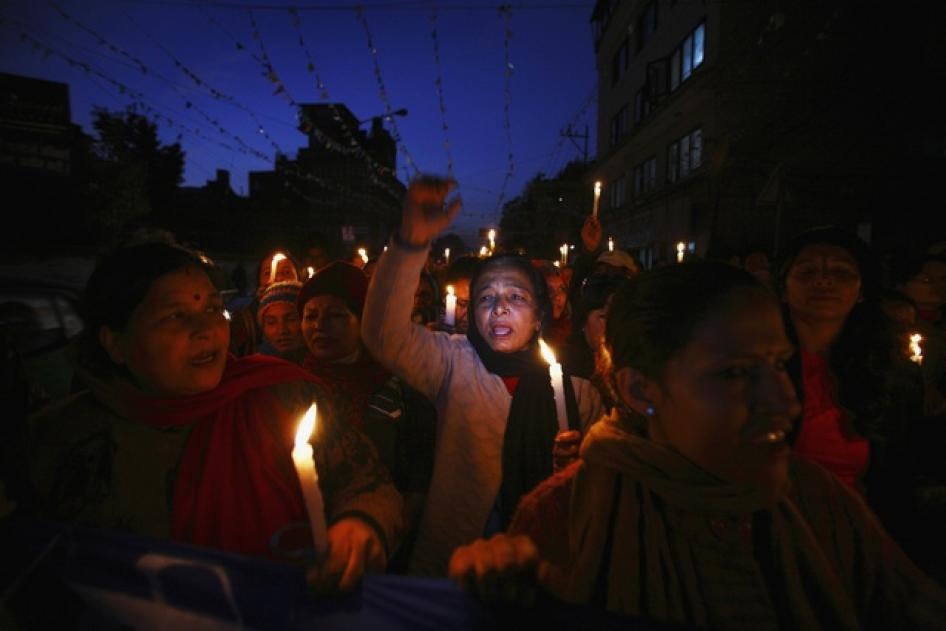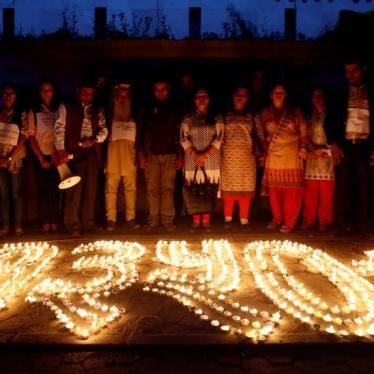One person was killed and several were injured in late August as police used force to curb recent protests over the rape and killing of a child in western Nepal. The schoolgirl’s body was found in a sugarcane field a day after she went missing in July.
Nepalis have long complained of police apathy in cases of sexual violence. An average of three rape cases are reported across the country every day, but the real number is likely much higher. Rape is often not reported due to social stigma.
In 2013, after the rape of a migrant worker by a policeman, Nepalis launched a movement called Occupy Baluwatar, named for the neighborhood where the prime minister's residence is located, demanding reforms to the criminal justice system. The protest lasted for more than 100 days. The government promised action, and set up a committee to look into legal reform. But there has been little progress.
In 2015, when the father of a six-year-old girl who had been brutally raped complained, the administrative officer apparently said he should have taken better care of his daughter. The child later died from her injuries.
The government of Prime Minister Khadga Prasad Oli has a majority in parliament and the mandate to press for change. He should use it.
This means better training for police, judicial officials, and medical professionals on how to properly handle rape cases. Effective laws to protect victims and witnesses should be enacted. Confidential, toll-free helplines should be set up to support women and children. The government should expand existing services for survivors of violence and provide specialized help for those who have lived through sexual violence.
But taking rape seriously should also be part of a wider move to end discrimination against women and girls in Nepal. The government should stop denying some women their citizenship rights, implement a long-delayed plan to end child marriage, get more girls into school and keep them there, and enforce the law against menstrual segregation, when women and girls are banished to remote huts during their periods, sometimes with deadly results.
Much more needs to be done if Nepali women and girls are to feel not only safe, but also respected too.









